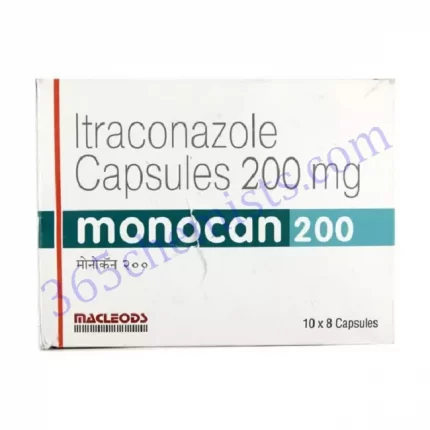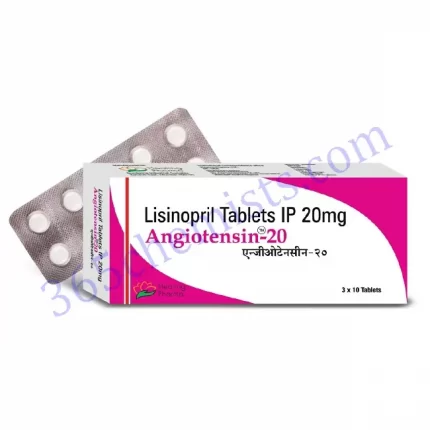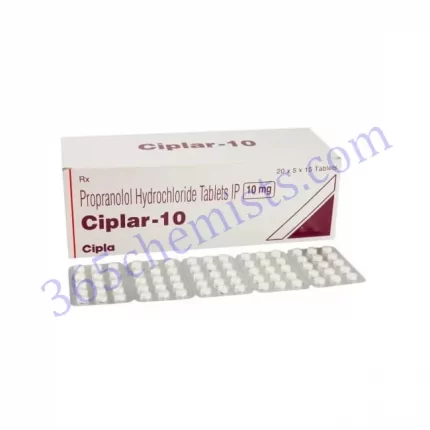Introduction
A medication known as Metomac 25 mg Tablet contains Metoprolol Succinate in a dosage strength of 23.75mg. This medication is taken by mouth. Beta-blockers are a class of medications that are frequently utilised in the treatment of a variety of cardiovascular conditions. This medicine belongs to that class. This overview of Metomac 25 mg Tablet will cover a variety of topics, such as its applications, recommended dosage, potential adverse effects, and safety considerations.
Uses and Benefits
The primary indication for the use of Metomac 25mg Tablet is for the management of hypertension, also known as high blood pressure. It does this by easing the strain placed on the heart and relaxing the blood vessels, which ultimately results in an increase in the amount of blood that can flow through them. It can help prevent complications associated with high blood pressure, such as heart attacks, strokes, and kidney problems, by regulating both the rate at which the heart beats and the blood pressure.
Metomac 25 mg Tablet may also be utilised in the treatment of angina (also known as chest pain) and certain cardiac arrhythmias (also known as abnormal heart rhythms) in addition to hypertension. It is frequently prescribed as a component of an all-encompassing treatment plan, which may also involve alterations to one’s way of life as well as the use of other medications.
Dosage and Administration
Your healthcare provider will determine the appropriate dosage of Metomac 25 mg Tablet for you based on the specifics of your condition as well as how well you respond to treatment. Oral administration once daily, either with or without food, is the typical method of administration. Because of its extended-release formulation, the tablet should be taken as a whole with a full glass of water; it should not be crushed or chewed. For the medication to work at its full potential, it is essential that the recommended dosage and timing be strictly adhered to at all times.
If you forget to take a dose, you should take it as soon as you realise you forgot. If, on the other hand, it is almost time for the next dose that was supposed to be taken, you should skip the dose that you missed and go back to your regular dosing schedule. It is not a good idea to take two doses at once in order to make up for a missed one.
Possible Side Effects
Metomac 25mg Tablet, just like any other medication, has the potential to cause certain adverse effects; however, not everyone will experience them. Tiredness, lightheadedness, headaches, a sluggish heart rate, low blood pressure, and gastrointestinal disturbances like nausea, vomiting, or diarrhoea are examples of common adverse reactions that may occur. These unwanted effects are typically not severe and only last for a short period of time. Additionally, you may experience less of them as your body adjusts to the medication.
Metomac 25mg Tablet may, in extremely rare instances, cause more severe adverse effects such as difficulty breathing, chest pain, swelling of the face or extremities, severe dizziness, or fainting. These adverse effects may be caused by Metomac 25mg Tablet. In the event that you experience any of these symptoms, you should seek medical attention right away.
Precautions and Warnings
Before beginning treatment with Metomac 25mg Tablet, you should discuss any pre-existing medical conditions with your healthcare provider. These conditions may include allergies, heart problems, asthma, diabetes, liver or kidney disease, thyroid disorders, or any other significant health concerns. You should also tell your doctor about any prescription drugs, over-the-counter medications, or dietary supplements that you are currently taking because there is a possibility that they will interact negatively with Metomac 25mg Tablet.
It is possible that particular groups of people, such as women who are pregnant or breastfeeding, young children, and elderly people, require additional safety measures. In these circumstances, your healthcare provider will evaluate the risks associated with using Metomac 25mg Tablet as well as the potential benefits.
Conclusion
The Metomac 25mg Tablet is a medication that is commonly prescribed for the treatment of hypertension, angina, and cardiac arrhythmias. This medication contains Metoprolol Succinate. It accomplishes this by lightening the load placed on the heart, as well as by controlling both the rate of the heartbeat and the blood pressure. It is absolutely necessary for successful treatment outcomes that you take the medication exactly as directed, keep a close eye out for any potential adverse effects, and stay in regular contact with your healthcare provider. If you have any questions or concerns about Metomac 25mg Tablet, you should speak with your healthcare provider to receive individualised guidance on the topic.
In a nutshell, the Metomac 25mg Tablet is a medication that has a dosage strength of 23.75mg and contains the active ingredient metoprolol succinate. Although it is primarily prescribed for the treatment of hypertension, this beta-blocker may also be recommended for patients suffering from angina and certain types of cardiac arrhythmias. Metomac 25mg Tablet helps prevent complications that can be caused by high blood pressure by lowering blood pressure and bringing the heart rate back under control. It is intended to be consumed orally once daily, in its entirety, with a glass of water.
Even though the Metomac 25mg Tablet is generally well tolerated, it is possible to experience some common side effects like fatigue, dizziness, and gastrointestinal disturbances while taking this medication. Even though serious adverse effects are uncommon, they should be reported as soon as possible to a medical professional. In order to ensure the Metomac 25mg Tablet is used in a safe manner, it is imperative that any pre-existing medical conditions and medications currently being taken be disclosed.
Keep in mind that while this explanation offers a general summary of the Metomac 25mg Tablet, it is in no way intended to replace the services of a trained medical professional. Always check in with your doctor or other healthcare provider to get individualised advice and suggestions that are tailored to your unique health requirements.












